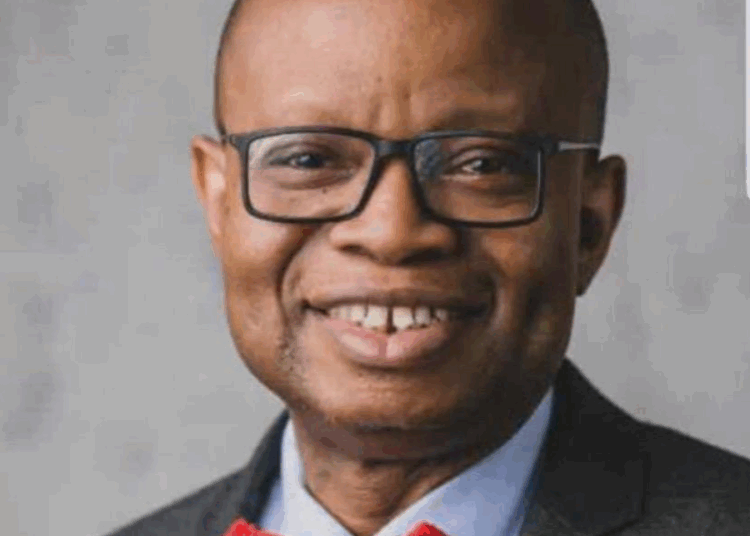President of the Nigeria Academy of Pharmacy and chief executive officer of Business School Netherlands International, Prof. Lere Baale, has described Nigeria’s widespread open drug market as a glaring symptom of systemic failure, and not the root cause of the country’s chaotic pharmaceutical distribution landscape.
Prof. Baale stated this during his presentation titled; “Optimising Nigeria’s Drug Distribution System: A Strategic Lifeline for Community Pharmacists and Mega Distributors,” at the 2025 national conference of the Association of Community Pharmacists of Nigeria (ACPN), on Thursday in Awka, Anambra State.
The conference, themed: “Technology Integration and Personalised Care: The Future of Community Pharmacy Practice,” was a bold step towards revolutionising pharmaceutical logistics and healthcare access by the ACPN.
In a press statement made available to LEADERSHIP Weekend, Prof. Baale asserted that the proliferation of unregulated drug markets across the country reflected the collapse of enforcement, infrastructure, and coordination in the country’s healthcare supply chain.
“These open drug markets—Idumota in Lagos, Sabon Gari in Kano and Bridgehead in Onitsha are not the cause of our challenges. They are symptoms of a broken system,” he stressed.
During a high-impact session titled: Business Clinic 2, Prof. Baale presented a compelling roadmap to fix the root causes of the country’s unwholesome drug distribution system while positioning community pharmacists and mega distributors as the twin engines of a new, digitally enabled ecosystem.
He identified a range of underlying issues fueling the spread of unsafe drug markets, including weak enforcement of pharmaceutical laws, poor implementation of the National Drug Distribution Guidelines (NDDG), inadequate infrastructure in rural and peri-urban areas, lack of digital track-and-trace systems, political interference and regulatory fragmentation.
He warned that unless these structural gaps are addressed, efforts to regulate drug distribution will continue to be undermined by illegal markets and counterfeit medicines.
To tackle these challenges, Prof. Baale proposed a transformation agenda that includes integrating Coordinated Wholesale Centres (CWCs) with WHO-compliant Mega Distributors, particularly through the Pharmaceutical Wholesalers and Distributors Association of Nigeria (PWDAN).
The proposed model, he said, would create a “hub-and-spoke” distribution network connecting licensed community pharmacies to reliable supply chains, with digital tracking for every product.
He also proposed bold policy interventions, including national e-distribution grid for medicine tracking, tax incentives and PPP models to attract investments in CWCs and Mega
Distributors, graded regulatory licensing based on compliance and reach, mandatory digital linkages between CWCs, Mega Distributors, and community pharmacies and support for indigenous players to compete under AfCFTA.
The renowned pharmaceutical leader stated that community pharmacists must be repositioned as frontline healthcare leaders capable of delivering safe medicines, public health education, and pharmacovigilance services.
He emphasised the need for pharmacists to adopt digital platforms, act as micro-logistics hubs, and take a more proactive role in vaccine storage and distribution.
Prof. Baale closed with an appeal to government, investors and professional bodies: “Let us no longer treat open drug markets as permanent fixtures. Let us instead train pharmacists as empowered entrepreneurs, invest in digital distribution, and build a supply chain worthy of the lives it is meant to protect.”





